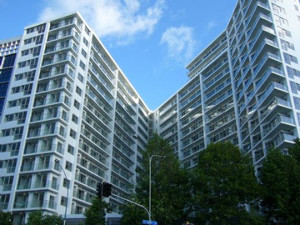In Wellington the average annual insurance premium per unit rose to $8,213 last year for an MUB owner-occupier, about three times the average of a stand-alone house. Premiums rose 58% between 2019 and 2023.
Insurance premiums for MUB owner-occupiers in Auckland have risen as well, doubling to $1,793 per unit, while across all regions they rose from $3,054 in 2019 to $4,983 last year.
Treasury surveyed 142 property owners, including 33 from Auckland and 66 from Wellington and says there are limitations to its findings as those who replied were most likely to be experiencing the most difficulty. The survey was not mandatory.
The general theme of the survey is insurance premiums have risen consistently faster for MUBs than standalone residential housing over the past five years. Premium increases appear to have been the biggest in Auckland in 2022 and 2023, but
Wellington’s remaining more epensive per unit.
Insurers says MUB premiums are pricier because these buildings are bigger and pose more complex risks, especially damage from seismic events, insurers say. While they are still taking on MUB business they assess risk and manage exposure carefully.
The main factor that seems to impact price is the age of the building, which may be a proxy for better building standards over time. However, there were too many related variables in the data to confirm this (e.g. most of the older buildings were more expensive but they were also located in Wellington so this may have been a reflection of seismic risk rather than age).
Wellington's earthquake risk is a significant factor for the insurance industry's capital needs, meaning insurance costs in the city are expected to remain high due to its natural hazard risk.
Of the 112 survey respondents, 67% indicated they were able to only get a quote from one insurer. Just over 30% say they could get quotes from more than one insurer and only one indicated that they did not have insurance.
Treasury says this indicates that while availability is limited, uptake is still relatively high.
About 70% of MUB buildings are co-insured. Several insurers band together to provide insurance. To secure these arrangements an insurance broker seeks bids from insurers and crafts the best ‘mix’ of insurers for the body corporate. Competition often plays out in the brokers crafting of the insurance offer and is less visible to clients.
Limited availability is exacerbated in areas such as Wellington where higher natural hazard risk makes insurers cautious. After the Kaikoura earthquake several providers pulled out of the Wellington MUB market (for example, Tower, Allianz, with AIG and Chubb reducing Wellington exposure).
Insurers have indicated that historically Wellington has not paid the full price for the capacity it uses. Insurers have been increasing Wellington premiums over the past decade to fully reflect the price of the cover being provided. This has helped to make the market more attractive for insurers and is starting to attract additional international capacity to the market.
The survey asked whether people had attempted to secure insurance directly from an overseas provider. Of the 133 that responded, 18 had secured insurance directly from an overseas provider.
A number of respondents either could not or would not consider engaging insurance from overseas because of worries about losing their existing share of the local market capacity and the cost and complexity when seeking redress as the overseas market is not subject to New Zealand law.



 Search
Search
